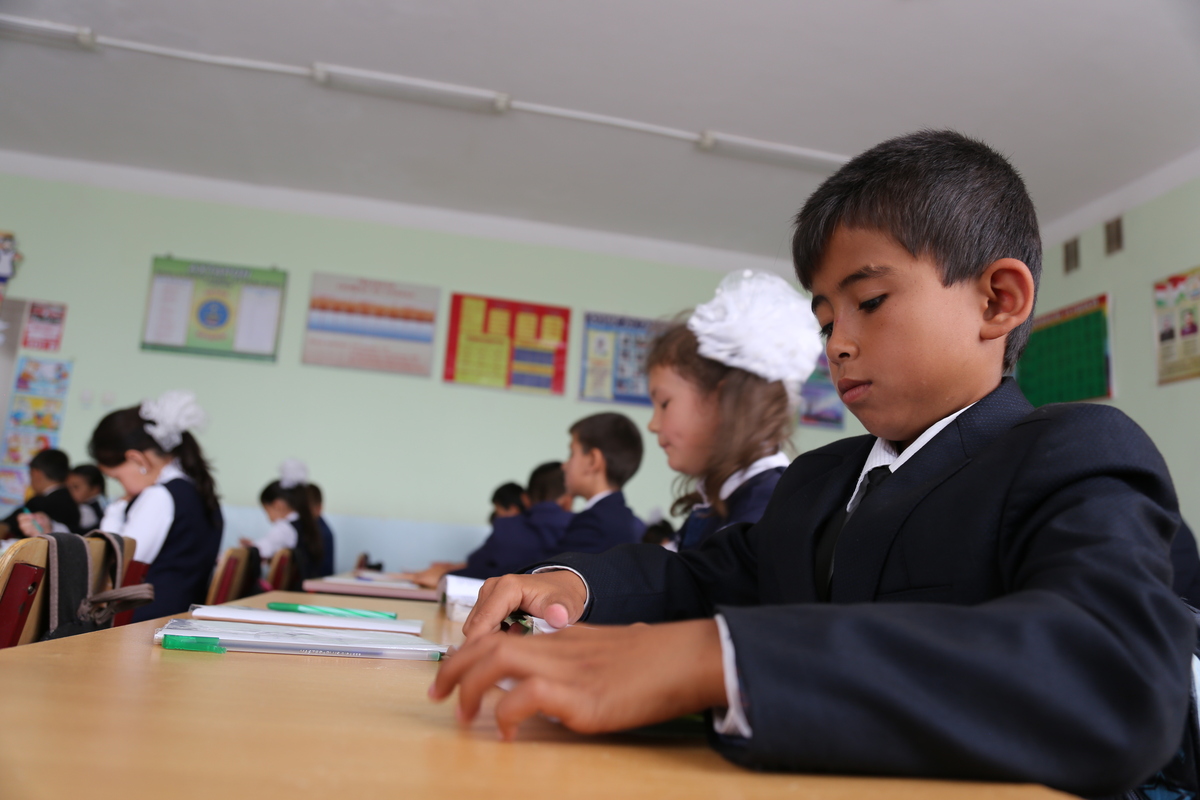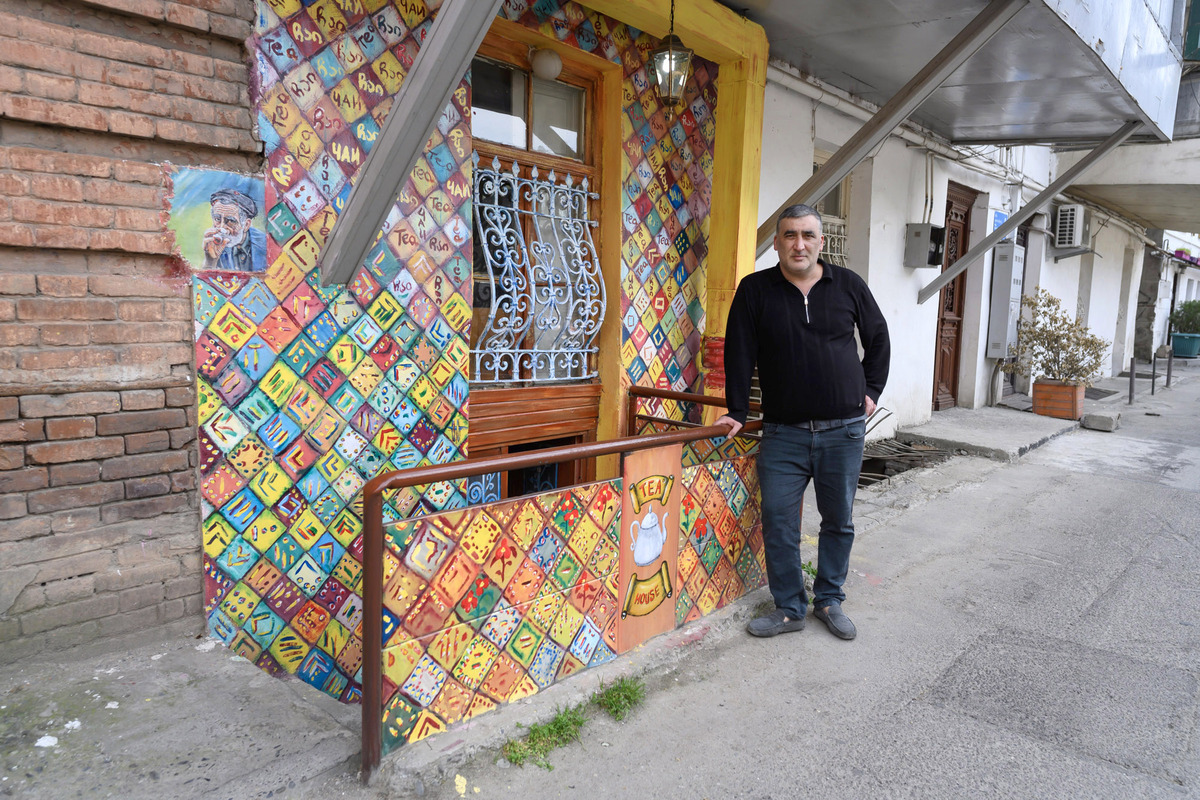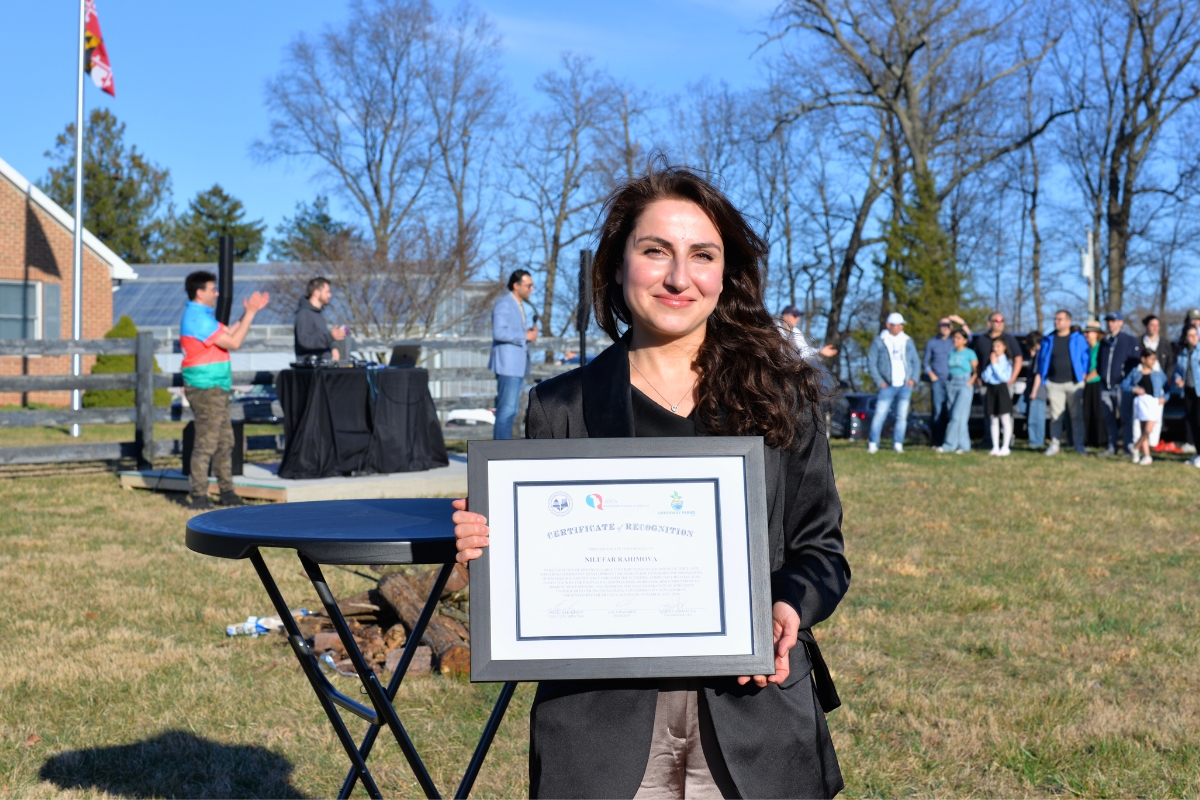- Home
- Tajikistan: Education Collapse Shattering Dreams
28 March 2024
Tajikistan: Education Collapse Shattering Dreams
Schools are thousands of teachers short of requirement; Salaries are dismal, educators are demoralized, children are bored.

Image: Global Partnership for Education - GPE/Flickr
(Eurasianet) Ever since he was a child, Alisher, 52, dreamed of becoming an art teacher.
He grew up when Tajikistan was still part of the Soviet Union. In those days, teachers and artists were deemed elite representatives of society.
Alisher studied, entered university, took part in art competitions, even won a few prizes.
Before his time in college was through, the Soviet Union collapsed. Shortly after that, a civil war broke out. It would grind on for five years.
“When I graduated from university, nobody needed the arts and teachers. Since I did not have a wife or children, or any particular family responsibilities, I began teaching at the university. On the side, I painted pictures in the hope of selling them and earning some extra money,” said Alisher.
Some of the people interviewed for this story spoke to Eurasianet on condition their name not be used in full.
But there was no market for Alisher’s paintings. Any spare money that people had went on food. His teacher's salary was meager. Sometimes it was not paid at all.
“At the age of 27, I got married. Later on, we had a son. I inherited an apartment from my father, but I still had to support my family. Our needs mounted gradually, but my earnings were not enough,” Alisher said.
For a long time, Alisher put off the idea of migrating in search of work. He had taken such painstaking efforts to pursue his dream that he was reluctant to give it up altogether.
In 2010, he threw in the towel. He went to Russia for work; first to Samara, then to St. Petersburg.
“It was hard for me to get used to the idea that I had to throw away my diploma, leave my children, and migrate. I had just spent 35 years of my life trudging on, so I needed to learn some kind of craft in a foreign country to feed my family,” he said.
There are countless thousands of trained teachers in Tajikistan who have been forced, like Alisher, to migrate because of low salaries.
According to the state statistics agency, average salaries for educators in 2023 were a little more than 1,600 somoni ($150). There are few jobs that pay less.
The teaching profession has become almost entirely female. Many of the men that enlist in teaching training courses at the Pedagogical University do so to get exemption from obligatory military service — an experience that entails two years of hazing and dismal rations.
The Education and Science Ministry has said that it was around 3,400 teachers short of requirement in 2022. This problem has worsened rapidly in just the last few years. In 2021, officials said the teacher shortfall was 1,124.
Deputy Education Minister Ziedullo Abdulzoda noted in August that the worst-affected subjects are things like mathematics, physics and chemistry.
Abdulzoda said the government is working to create incentives to attract more people to the profession, but those are hard to see. The factors repelling prospective teachers are legion, meanwhile.
Daler, also a teacher, lives in Thailand nowadays. Back in Tajikistan, he tired of the constant time-consuming inspections from the Education Ministry, the Interior Ministry, and the General Prosecutor’s Office, among others.
“My physics students won prizes at international Olympiads,” Daler, 35, told Eurasianet. “Sometimes we stayed in school dormitories to understand what children were learning in the West. But when we returned [to Tajikistan], nobody from the Education Ministry would meet us, congratulate the children, or give us any support. It’s like they think that is how it should be.”
Daler said it dismayed him and his students that a sporting medal would always be valued so much more than any prize they managed to win at an academic tournament. Education Ministry inspectors obsess over administrative and bureaucratic issues, but give little heed to scholastic achievements, he said.
“We constantly have complaints about … the school clothes [of pupils] not meeting the requirements of the ministry, about how their hair isn’t cut or tidy. But successes entirely elude their attention,” Daler said.
Weary of these frustrations, Daler applied for vacancies at international schools outside the country. He was hired by a school in Kyrgyzstan, and then later moved to Thailand.
The shortage of teachers is a problem even in the capital, Dushanbe.
Firuza Akobirova is looking for a decent school for her daughter, who is poised to enroll in first grade later this year. At the school near her house, the younger children arrive for classes at 8 a.m. and leave at 10:40 a.m., she said.
“What can you teach children in two-three hours? As well as learning their ABCs and numbers, children need to do some creative activities so they can develop innovative thinking,” Akobirova said. “This really worries me, so I need to find another school, I cannot send her to the nearest one.”
Akobirova said she is contemplating going private, but monthly fees at the places she is looking at can range anywhere between $80 and $150.
“I work as a nurse in a hospital, my husband works part-time as a laborer. Our total monthly income is $250-300. With our salaries, the cost of private schools is beyond our means. But in ordinary schools, there is no normal basic education,” she said.
Madina Muso, a ninth-grade student in Dushanbe, has experienced all this first hand. There are so few teachers, they do only two or three classes, each lasting 45 minutes, every day, she said.
“Sometimes the teacher arrives and she talks about who has or has not paid for some fee,” Muso said. “Or we sit around and chat among friends. By 11 a.m., I am back home helping my mother with the household chores.”
Once she is done with ninth grade, Muso plans to get into studying computer programming.
“I don’t want to waste two more years at school. There's nothing to do there. I’m bored. It feels like time is just being wasted and we’re not learning anything,” she said.
High school beckons all the same. There is no getting around it.
“I hope that there will be some interesting and useful classes in high school. And just in case, I’ll study Turkish. Ever since I was small I have dreamed of becoming a translator,” Muso said. “I dream of finding my place in this world. I look at my cousins stuck in their everyday routine. Their life seems to have ended after marriage. That makes me scared.”





